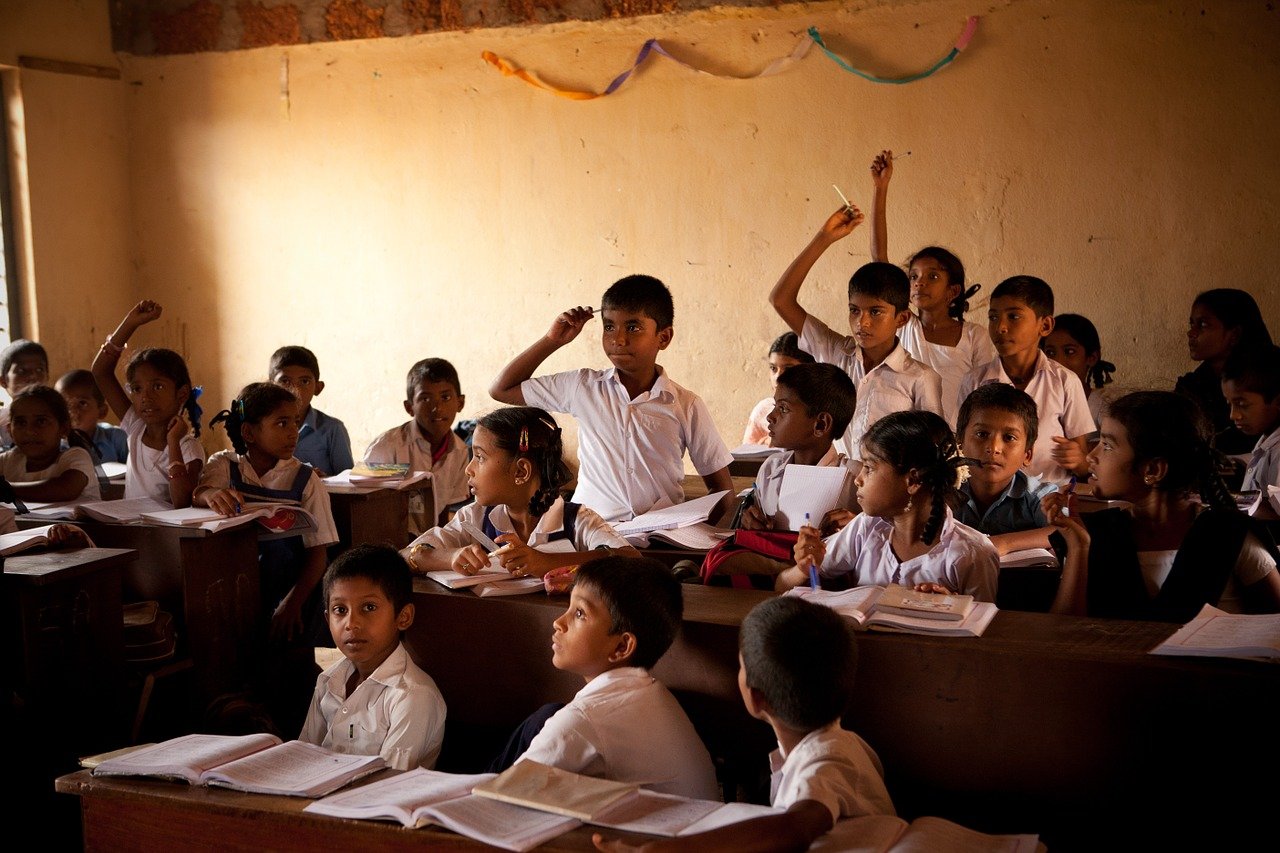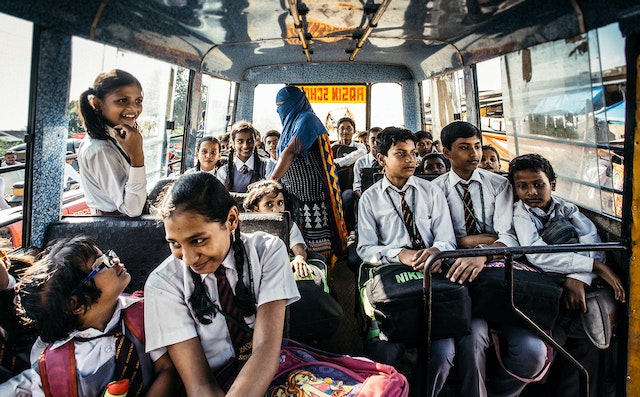
In Transit | Special Educators in the Framework for Inclusion in Education
Examining the transitioning role of special educators in relation to the Rehabilitation Council of India
Summary: This study examines the relationship of special educators (those trained to teach students with disabilities) with the Rehabilitation Council of India, the statutory body tasked with regulating them and other rehabilitation professional.
Context
The Rehabilitation Council of India (RCI), under the Ministry of Social Justice and Empowerment, was set up to standardise training and regulate rehabilitation professionals and personnel working with persons with disabilities, and develop human resources for the field.
Of the 16 categories of rehabilitation professionals and personnel (such as audiologists, speech therapists, hearing aid technicians, etc.) registered with the RCI, approximately 75% are engaged in special education and training for persons with disabilities. Thus, design of curriculum for special educators, their registration, and the recognition and monitoring of teacher training institutions form a significant proportion of the RCI’s responsibilities.
These special educators are typically pursuing a diploma and/or degree (B.Ed./D.Ed. Special Education) under institutions certified by the RCI, and are classified as having a specialisation in disability-specific categories such as hearing impairment, intellectual disabilities, visual impairment, etc. They undertake this in order to be trained to better support and teach students with the concerned disabilities in various school settings, including special and regular schools. Yet, it is the National Council for Teacher Education (NCTE) that is mandated with prescribing norms and standards for the development of the teacher education system more broadly.
The roots of this institutional separation go back to the understanding of disability itself, where disability was understood under the ‘medical model’- necessitating diagnosis and treatment, as opposed to accommodation of diverse needs. While the debate and legislative framework have moved on by calling for “inclusive education” for disabled students (see Sections 16 and 17 of the Rights of Persons with Disabilities Act, 2016), this institutional separation persists. Hence, it is important to critically examine the prevalent separation in teacher education and regulation.
Along the lines of this understanding of disability, the RCI also has a Continuing Rehabilitation Education (CRE) component through which it aims to ensure that professionals and personnel are updating and upgrading their knowledge and skills. Professionals registered with the RCI are required to attain a minimum number of ‘points’ for reregistering with the Council every five years, which can primarily be done through attending CRE programmes.
Understanding the Gap Between the RCI’s Mandate, Legal Developments & Needs of Special Educators – Key Findings
This study engaged with this institutional separation from the perspective of special educators and the statutory body regulating them, the RCI. The study investigates the RCI’s institutional history through parliamentary debates on the RCI Bill, 1992 and through interviews with 82 registered educators from Bihar and Maharashtra. Educators were asked about their education and work experiences including their interaction with classroom teachers, students and parents, and with the RCI.
Multi-track stage of education: Findings from this study present a view that special teaching and learning in case of students with disabilities is in a state of flux and has transitioned considerably from the time of the RCI’s establishment to the present situation today. Interviews with special educators in Bihar and Maharashtra suggest that we are currently in a “multi-track” stage of education development as far as students with disabilities are concerned. This may be understood as a stage where the inclusion process is constitutive of specialised education and training, as well as provisioning of teaching and guidance support within the regular schooling system where the general teacher is also being trained. Special educators understand these multiple tracks from the viewpoint of employment options they have. They are entering, shifting between work settings, and leaving the field as per changes taking place in this multi-track stage.
Lack of job & inadequate jobs for special educators: In the two states studied, job opportunities in the government schooling system are limited to general teaching positions, with respondents stating that itinerant teacher and school-based special educator positions not being recruited for since 2012-13. Further, respondents in rural areas claimed few such positions existed in their localities to begin with. At the same time, the terms of employment are unfavourable in both NGO-run special schools and itinerant teaching with low remuneration, high workloads, and lack of clarity on job roles. Itinerant teachers employed under Samagra Shiksha Abhiyan (SMSA) complained of the significant, and unfair, disparity in remuneration for special and general teachers, and about the contractual nature of their jobs. They further suggested their salaries were disproportionate to the actual work they were responsible for and carried out.
As a result, educators are moving to options such as self-employment including providing tuitions, or taking up non-teaching work. A significant 36 per cent of respondents had left the teaching profession, or were unemployed at the time of the survey.
Inclusion approach limited by systemic challenges: Those employed as itinerant teachers and special educators in general schools acknowledge that the training they pursued and their work is to only add to general classroom teaching and direct students to other government support schemes including aids and appliances. However, respondents said they found this inclusion approach limiting due to the existing systemic challenges for regular teachers, including large class sizes, administrative work and lack of training coupled with the lack of vacancies in SMSA for itinerant teachers. Several respondents also brought up the concerns of parents regarding the amount of attention their children received in regular schools due to these challenges.
Insufficient training and outdated CRE courses: from pointing to limitations of regular teachers’ training with respect to teaching students with disabilities, special educators pointed towards their own limitations in teaching students with different disabilities, suggesting that the limited cross-disability training they received, which was sometimes only five days long, did not sufficiently prepare them to work with the diverse needs of students. Further the many who could not secure employment in teaching students with disabilities felt that the courses they had pursued to become registered with the RCI were no longer relevant for them.
Similarly, respondents who could not secure employment in the field did not pursue and failed to see the benefit of CRE programmes. Others complained they could not attend these programmes even if they desired to, due to the physical inaccessibility of these programmes especially in rural areas, out-of-pocket expenditure incurred, or because of lack of information about where the programmes were held. Although these processes may seem insignificant in the broader education process, respondents reported that not getting registered or re-registered within a stipulated time period could invite suspension or termination from their teaching duty.
Lack of parental awareness: Finally, respondents spoke of the importance of parental/guardian awareness about disability in improving the child’s education outcomes. They cited that this lack of awareness and consequent lack of support for children in the household made it difficult for students to pursue education meaningfully.
Key Recommendations
Drawing on the concerns of the special educators, the following recommendations are provided:
- Because continuing education is presently linked with registration renewal, the CRE point-based programmes should be conducted free of cost or at minimal registration fee. Further, addressing lack of information and physical inaccessibility to CRE programmes (especially for those living in rural/remote areas) by conducting them through online modes, where possible without compromising on the quality of the programmes is suggested.
- There is also a need for the RCI to actively consult with, and understand teaching experiences of both regular teachers and special educators in order to (i) review the appropriateness of degree and training courses offered; (ii) create a feedback mechanism for all educators regarding their ability to teach students with diverse needs; and (iii) ensure that regular and special educators work in collaboration rather than in silos.
In line with Section 16(iv)-(v) and (vii) of the Rights of Persons with Disabilities (RPWD) Act for enabling inclusive education and the Memorandums of Understanding between the NCTE and RCI in the past, there is an urgent need to consider how the broader degree and training courses can be directed to general teachers in a more frequent and meaningful way so that they are prepared to work with all students, including those with disabilities, in the long-term.
- Finally, and importantly, the RCI needs to investigate why so many trained special educators, who could apply for regular teaching posts also, are exiting the education field.
Based on this study the Vidhi team was able to provide suggestions on proposed amendments of the RCI Act. Access the link here.




